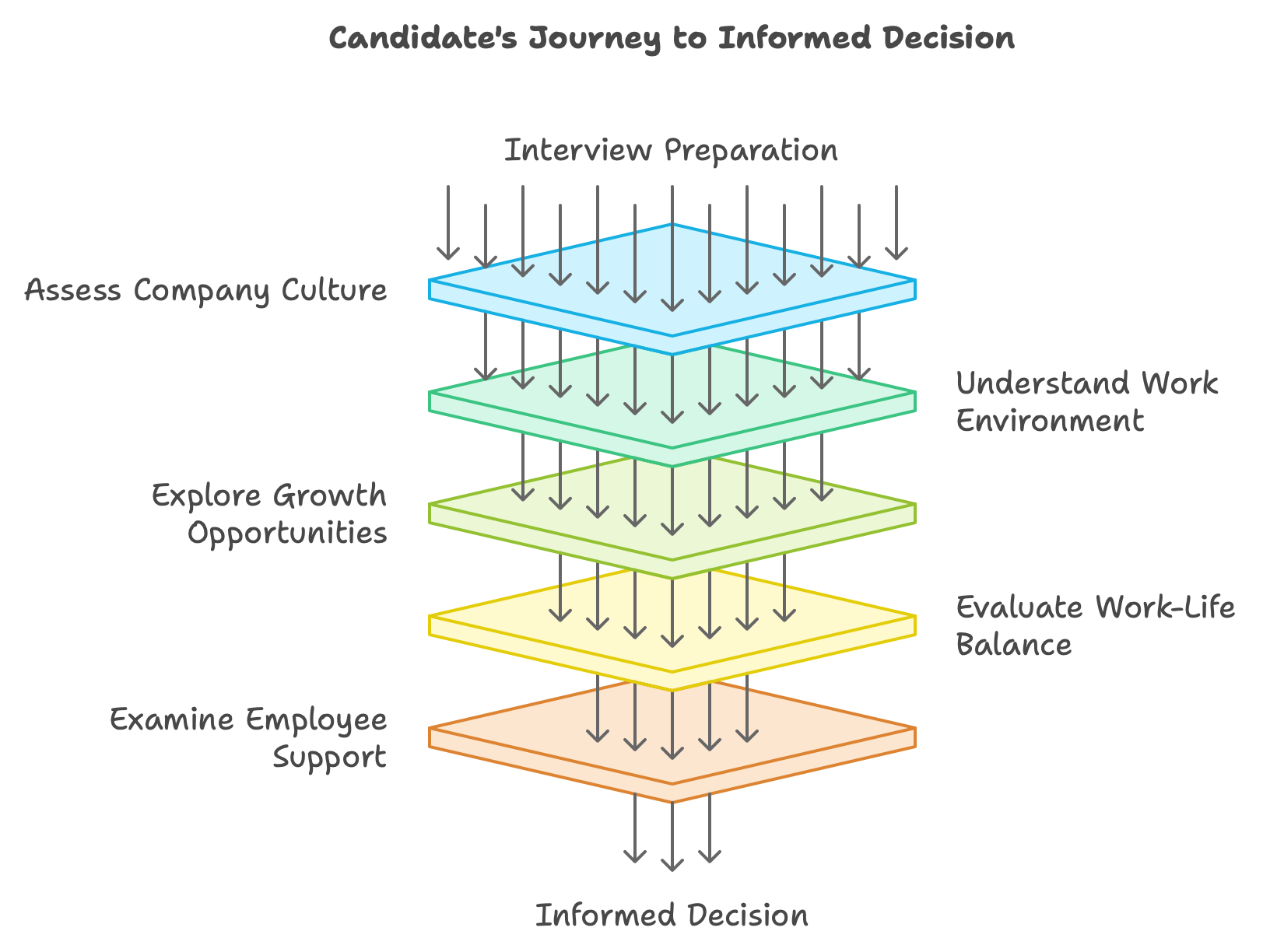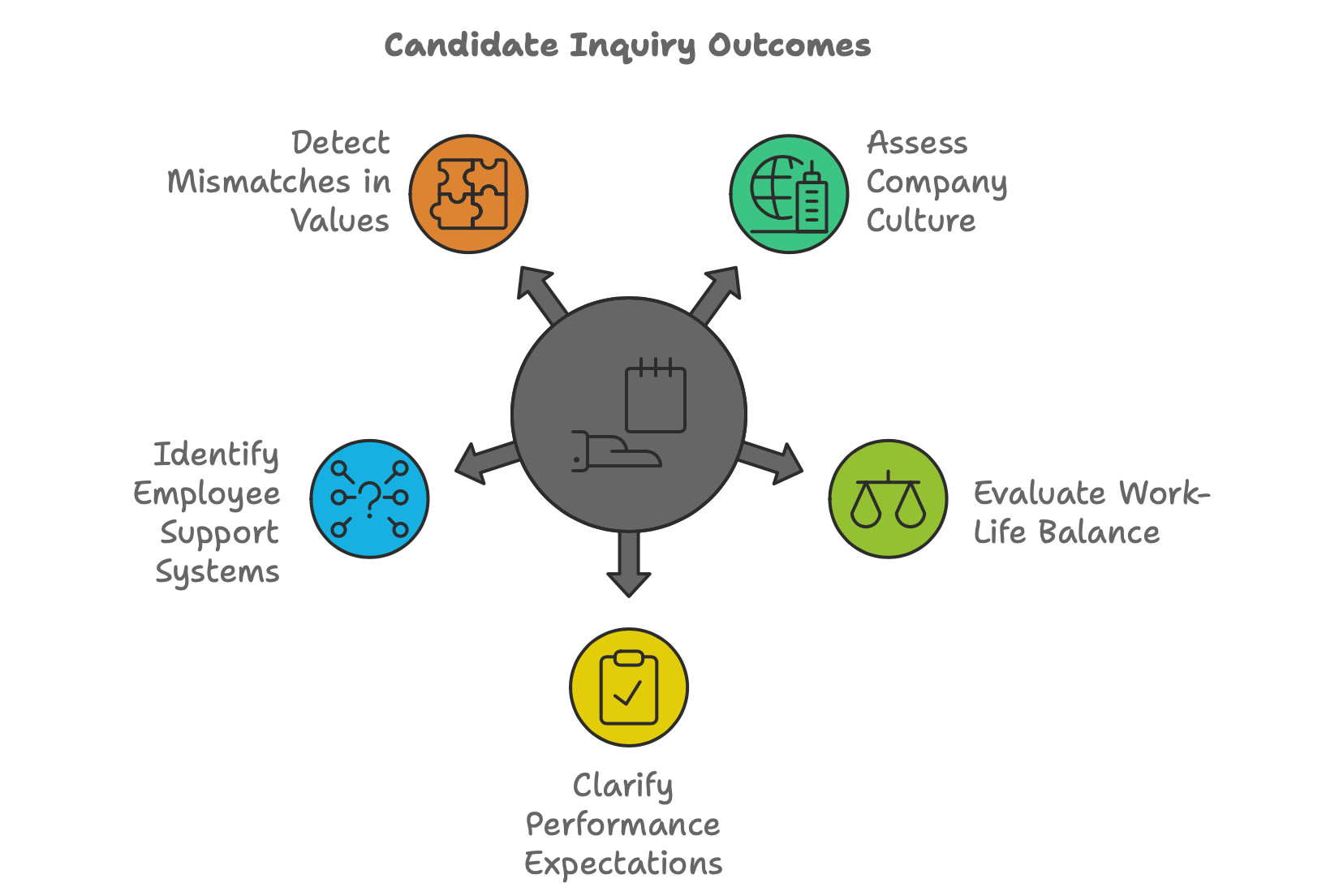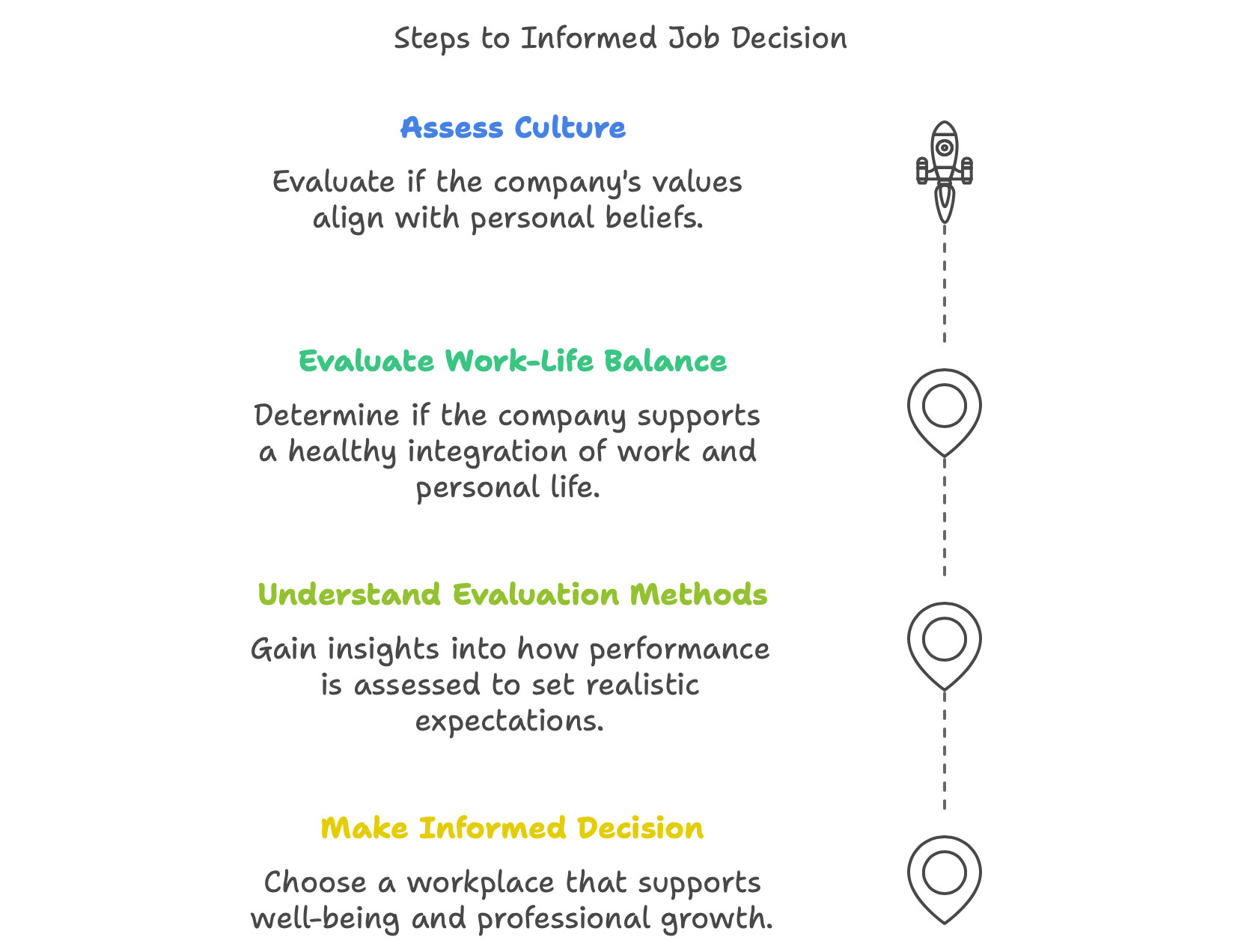Through out my experience working as a Recruiter and Head of People, after successfully placing 1000 candidates into various technology companies, I gained valuable insights into the hiring process and the qualities that make candidates stand out. I cover complete process of talent acquisition, starting from scouting for talent to helping managers form and motivate their team.
Asking the Right Questions: Gathering Crucial Information
When it comes to job interviews, many candidates often focus on impressing the interviewer rather than gathering crucial information about their potential employer. However, taking the time to ask insightful and open-ended questions can provide valuable insights into a company's culture, work environment, and expectations.
In this article, we will explore why it is essential for candidates to ask relevant questions during an interview and provide a list of inquiries that can help make an informed decision about a future employer.
In this article, we will explore why it is essential for candidates to ask relevant questions during an interview and provide a list of inquiries that can help make an informed decision about a future employer.

Asking questions about a company's culture during an interview is crucial. Every organization has its own unique work environment, values, and expectations. By asking about the company culture, candidates can determine whether they will be a good fit within the organization and if their personal values align with those of the company.
This knowledge helps ensure a better long-term fit and job satisfaction. Here are the Questions for Assessing Cultural Fit which can give you more insights.
Insight into the Work Environment: Inquiring about the day-to-day operations, work processes, and team dynamics provides candidates with a clearer understanding of what it's like to work in the company. Questions about common procedures, collaboration methods, and decision-making processes shed light on how tasks are accomplished and how employees interact with one another. Such insights help candidates assess whether they would thrive in the given work environment.
Candidates should inquire about growth opportunities and career development paths within the company. Understanding if there are avenues for professional advancement and whether the organization invests in its employees' growth is crucial for long-term career planning. This information can also indicate if the company values employee development and if they provide resources and support for skill enhancement.
Striking a balance between work and personal life is essential for job satisfaction. Candidates should ask questions about work-life balance policies, flexible working hours, and remote work options to gauge whether the company promotes healthy work-life integration. This knowledge ensures that candidates can maintain a healthy lifestyle and avoid potential burnout.
Inquiring about employee support systems, benefits packages, and resources for personal and professional well-being is crucial. Candidates should seek information about mentorship programs, employee assistance programs, and other support structures that foster a positive work environment. Additionally, understanding the available benefits, such as healthcare, retirement plans, and vacation policies, helps candidates evaluate the overall compensation package.
When preparing for a job interview, candidates must not overlook the importance of asking relevant and open-ended questions. Taking the time to gather information about company culture, work environment, growth opportunities, work-life balance, and employee support can lead to a better understanding of a potential employer. By asking the right questions, candidates can make informed decisions about their future careers and increase their chances of finding a rewarding and fulfilling job. Remember, research and questioning go hand in hand when seeking the perfect fit in the professional world.
By exploring and asking the right questions, candidates can notice:

A toxic work environment, excessive working hours, or unrealistic expectations can take a toll on mental health. Gathering information about company culture, work-life balance, and employee support systems helps candidates assess whether the organization prioritizes employee well-being. This knowledge allows candidates to make informed decisions and choose a workplace that fosters a positive and supportive atmosphere.
Maintaining a healthy work-life balance is vital for overall well-being. By asking about flexible working hours, remote work options, and vacation policies, candidates can determine if the company values work-life integration. This knowledge enables candidates to choose an employer that respects their personal life and allows them to maintain a healthy balance between work and leisure.
Understanding how results are evaluated within the company is crucial for setting realistic expectations. By inquiring about performance evaluation methods, candidates can gain insights into whether the company promotes a fair and transparent system. This knowledge helps candidates prepare themselves for the performance standards and expectations of the role, reducing the likelihood of surprises or potential dissatisfaction in the future.
The journey of starting a new job can have a significant impact on an individual's mental health, overall satisfaction, and work-life balance. Therefore, it is vital for candidates to gather as much information as possible before accepting an offer. By exploring and asking pertinent questions, candidates can avoid potential mental health issues, ensure a healthy work-life balance, and set realistic expectations. Remember, investing time in research and questioning is an investment in your future well-being and professional growth.

How to notice a mismatch between a wish to be a modern employer and reality
The questions asked by interviewers play a crucial role in assessing a candidate's fit for the company, but not exclusively for this purpose. They serve well for the candidates too. Pay attention and write details on questions asked during the interview. It helps you to analyze them after it is ready. Don't forget to ask for permission for making notes, which also shows your attention to the details.
A well-rounded interview process should cover various aspects of the candidate's background and qualifications. If multiple interviewers focus only on specific areas and fail to grasp the bigger picture, it could indicate a lack of understanding of the company's strategy or direction from top management.
This may suggest a potential mismatch between the organization's stated values and the actual implementation of those values. Excessive hierarchy and a lack of alignment between different levels of the company could hinder effective communication and hinder the organization's ability to fulfill its strategic objectives, potentially a sign of a chaotic environment.
Therefore, candidates should pay attention to the consistency of questions asked throughout the interview process to gain insights into the company's internal dynamics and culture.
A well-rounded interview process should cover various aspects of the candidate's background and qualifications. If multiple interviewers focus only on specific areas and fail to grasp the bigger picture, it could indicate a lack of understanding of the company's strategy or direction from top management.
This may suggest a potential mismatch between the organization's stated values and the actual implementation of those values. Excessive hierarchy and a lack of alignment between different levels of the company could hinder effective communication and hinder the organization's ability to fulfill its strategic objectives, potentially a sign of a chaotic environment.
Therefore, candidates should pay attention to the consistency of questions asked throughout the interview process to gain insights into the company's internal dynamics and culture.

Get ready to ask thoughtful and insightful questions
The ability of candidates to ask thoughtful and insightful questions during an interview is indeed highly valuable. It goes beyond merely accepting the information provided by the interviewers and demonstrates their genuine interest in the role and the company. Here are a few reasons why candidates asking questions is significant:
Demonstrates Engagement and Interest: When candidates ask questions during an interview, it showcases their active engagement and genuine curiosity about the role and the organization. It conveys that they have taken the time to research and are invested in understanding the company beyond what was mentioned in the job description or during the interview itself. This level of interest is highly regarded by interviewers and can leave a positive impression.
Highlights Critical Thinking and Analytical Skills: Asking relevant and thoughtful questions demonstrates a candidate's ability to think critically and analyze information. It shows that they can assess the provided information and seek additional insights to make informed decisions. This quality is highly desirable in potential employees as it indicates their potential to contribute valuable ideas and solutions within the company.
Assesses Cultural Fit and Company Values: Through their questions, candidates can further explore the company's culture, values, and work environment. This allows them to assess whether their own values align with those of the organization, ensuring a better cultural fit. It also provides an opportunity for candidates to gauge the company's receptiveness to open communication and their commitment to transparency.
Clarifies Expectations and Responsibilities: Asking questions allows candidates to gain a deeper understanding of the role's expectations, responsibilities, and potential challenges. This clarity helps candidates assess whether they have the necessary skills and experience to thrive in the position. It also allows them to prepare themselves for the potential opportunities and obstacles they may encounter in the role.
Overall, candidates who actively ask questions during an interview demonstrate their enthusiasm, critical thinking abilities, and commitment to making an informed decision. It is a positive attribute that not only enhances their chances of securing the position but also indicates their potential as valuable contributors within the organization.
I also recommend you to read realted article for elevating your skills and become a top candidate everyone wants to hire:
Resume Red Flags - Part 1, Part 2, Part 3
Why Your LinkedIn Profile is so Important?
Inside the Mind of a Recruiter: How Companies Really Evaluate Candidates
The Job Market Playbook: Selling Yourself as the Top Candidate
How to Get Hired: Job-Hunting Hacks and Strategies for Success
I also recommend you to read realted article for elevating your skills and become a top candidate everyone wants to hire:
Resume Red Flags - Part 1, Part 2, Part 3
Why Your LinkedIn Profile is so Important?
Inside the Mind of a Recruiter: How Companies Really Evaluate Candidates
The Job Market Playbook: Selling Yourself as the Top Candidate
How to Get Hired: Job-Hunting Hacks and Strategies for Success
{$te}
UnitiQ’s services focus on enhancing the hiring process by integrating the key insights shared in the article "What I Learned After Hiring 1000 People." They specialize in improving talent acquisition by prioritizing cultural fit, effective onboarding, and leadership involvement.
By providing businesses with customized solutions, such as structured onboarding meetings and ongoing mentorship programs, UnitiQ ensures that companies not only attract top talent but also create an environment where new hires feel supported, engaged, and aligned with company values for long-term success.
We are happy to help you with Talent Acquisition and HR tasks, please contact me, Olga Fedoseeva, Fonder at UnitiQ, directly:
My Telegram
My LinkedIn
By providing businesses with customized solutions, such as structured onboarding meetings and ongoing mentorship programs, UnitiQ ensures that companies not only attract top talent but also create an environment where new hires feel supported, engaged, and aligned with company values for long-term success.
We are happy to help you with Talent Acquisition and HR tasks, please contact me, Olga Fedoseeva, Fonder at UnitiQ, directly:
My Telegram
My LinkedIn








